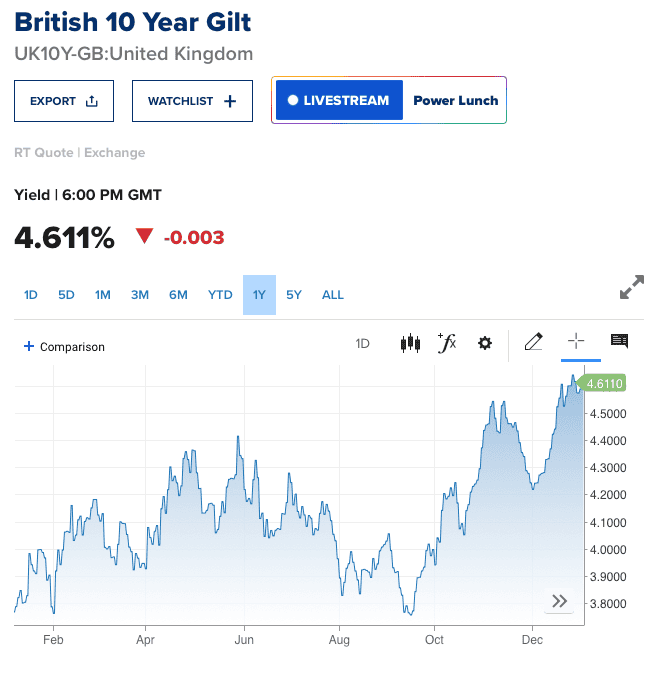Over the last 12 months, Unilever (LSE: ULVR) shares have risen about 16%. However, this figure doesn’t tell the full story. Since 9 September they’ve actually fallen around 12%. So what’s going on with the blue-chip FTSE 100 stock right now? And is this a buying opportunity?
A bond proxy
In my view, the share price weakness can be largely attributed to interest rates. You see, Unilever’s often seen as a ‘bond proxy’. This is a type of stock that’s a bit like a bond in that it’s defensive in nature and it pays regular income.
Now when interest rates are falling, and yields on bonds are dropping, bond proxy stocks often do well. That’s because their dividends become more attractive to investors.
Should you invest £1,000 in BP right now?
When investing expert Mark Rogers has a stock tip, it can pay to listen. After all, the flagship Motley Fool Share Advisor newsletter he has run for nearly a decade has provided thousands of paying members with top stock recommendations from the UK and US markets. And right now, Mark thinks there are 6 standout stocks that investors should consider buying. Want to see if BP made the list?
However, when rates are rising, or expected to stay higher for longer, bond proxies often underperform. That’s because many investors opt to invest in bonds instead (bonds are safer than stocks).
Now, if we look at the Unilever chart, it had a brilliant first three quarters of 2024, rising about 27%. Some of this performance was down to strong results, but for most of this period, investors were expecting major central banks such as the US Federal Reserve and the Bank of England to cut rates rapidly.
In the fourth quarter however, it started to become apparent that due to several variables (eg inflation and economic growth), interest rates may stay higher for longer. And government bond yields surged.
The yield on 10-year gilts, for example, jumped from 3.7% in mid-September to 4.6% at the end of the year. It was a similar story with US Treasuries with yields on 10-year Treasuries surging from 3.6% to 4.6%.
All of a sudden, investors could lock in relatively attractive bond yields for the long term. As a result, Unilever shares lost some of their appeal.

Worth buying?
Are the shares worth considering for an investment portfolio today? I think so.
Recently, the company’s been performing pretty well, thanks to a focus on efficiency by the new management team. And this year, the group’s expected to generate solid earnings growth.
Currently, earnings per share (EPS) for 2025 are expected to come in at 309 euro cents. That’s 6.3% higher than the forecast for 2024 (290 euro cents).
Meanwhile, the valuation has come down recently. We’re now looking at a price-to-earnings (P/E) ratio of less than 18, which I think is relatively attractive given this company’s brilliant long-term track record (annual returns of nearly 10% over the last decade).
As for the dividend yield, it’s risen to around 3.5% after the recent share price fall. That’s obviously not the highest out there but it’s decent, especially when you consider that Unilever tends to raise its payout by about 5% a year.
Of course, if interest rates move higher in the near term, I’d expect the stock to continue underperforming. Taking a long-term view however, I think the stock has the potential to generate solid returns when dividends are factored in.








